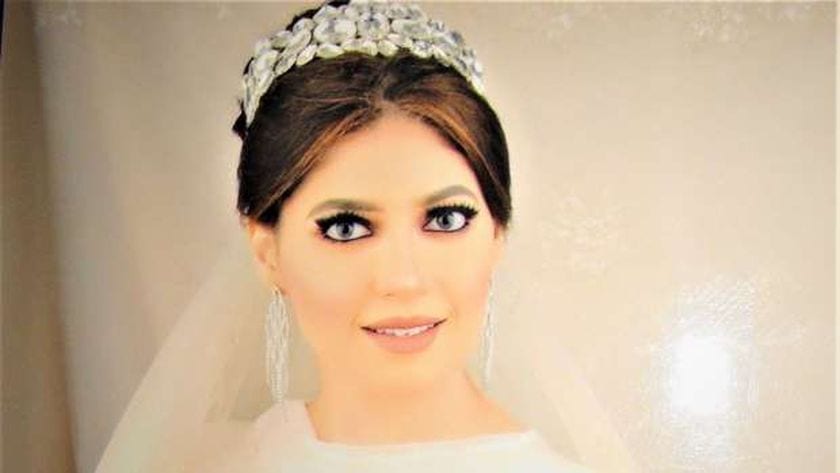
“Physical pain has no voice, but when it at last finds a voice, it begins to tell a story,” wrote the American researcher Elaine Scarry in her book “The Body in Pain.” Her sentence has never been more applicable than it was on June 27, 2020, when I ran into the hashtag #Eman_Adel’s_Right. This was accompanied by calls for retribution from a murderer of a girl who has the same name as mine. Moreover, the victim had not only my name; but she was also a rural Egyptian young woman who had one child and was married to a non-Egyptian, just like me. I thought that these were signs. Her ailing body wants to tell her story and other stories that share close, and perhaps identical, narratives; as identical as our names are. I do not exaggerate if I say that I felt the most obvious sign coming from Eman Adel herself, “Be my voice and tell my/our story, you are the woman who shares my name.”
Can you imagine, Eman, that the time coincidence was my only rescue? I was born ten years before you were.
Less than two months ago, Eman Adel was quietly weaving her story, though she had not yet recovered from the symptoms of childbirth and malnutrition. According to her mother, Eman had fainted more than once because of her feeble physical state due to breastfeeding her only child (9 months). I remember that months ago, I was carrying these dark circles around my eyes and struggling to complete the entire breastfeeding period. Eman was also struggling, and was only defeated the moment she fell, when her eyes could not see anything but darkness, except for some scattered white dots, just like as a channel that had stopped broadcasting.
I understand her feeling when she gets refreshed by the cold and sweating while losing consciousness, as if she was in a spiritual break, despite the pain. She wakes up only to fear disappointment if her breasts would not produce enough milk for her child, so she stuffs her stomach with fenugreek drink and natural galactagogues. Yet this is not her only role, despite the magnitude of the role caring for an infant, she had her own academic concerns as a student, and research that she had to submit during the Coronavirus crisis, household chores such as cleaning and cooking, and a husband who suddenly saw that his soft bride had changed after birth, and that he should be happy with another woman who is free of cares and ready to listen to him. He should always come first and be the only hero in the life of his woman. There are men, Eman, in our rural environments who would not admit that they are jealous of the changing roles, jealous even of their own babies. They do not care if you have postpartum depression. They will never see nightmares like yours, about the possibility of the baby choking while sleeping, because of frequent vomiting. They will not be chased by a mother’s nightmare that her baby falls on the floor, or suffocates if she snoozes or falls asleep while breastfeeding. They will not dread the possibility of a gastroenteritis, and vaccination dates will not cause them anxiety that the infant may get fever, nor will they become forgetful due to sleep disorders. Most of them will only be reassured by accusing their wives of becoming weird, totally absorbed by the babies, and completely exhausted.


We both know that our pains; the pains of the majority of women, are not shareable, our pains are suppressed so that they defeat our memory and slowly dissipate it. Elaine Scarry agrees with this, she says “Whatever pain achieves, it achieves in part through its unsharability, and it ensures this unsharability through its resistance to language.” Your mother, Eman, said that you were silent, you did not complain nor object, although your body was the most eloquent in its expression of pain by its repeated fainting. But you know what? You would have been shocked if you had told your mother that your husband wanted to marry another. After your death, your mother said “Let him marry again, what’s the harm?” Would you have been able to bear all this disappointment? Maybe she was tormented by your sudden death that she wished he had married another rather than killing you. I know you feel for her and would not agree with me using the word “disappointment,” and you would like to replace it with “helplessness.”
Layers of pain, Eman, are continuously placed on the shoulders of their daughters, one after the other, yet you were tolerant with everyone when they married you off before the age of 20, to carry loads of responsibilities, while keeping silent and hiding the pain and the screams. Your screams were muffled, Eman, as the murderer, that your husband had hired to rape you, tried to suffocate you. Even your neighbors did not hear your voice, they only heard the voice of your screaming baby, lying on your dead body. I imagine that you wanted to let out this particular last scream, not only to seek survival, but to end this long silence. You wanted to be heard, you wanted your voice to flow and your scream to drown this world. I do not think you chose to die during your last moments. Of course, you were terrified of the thought of survival, if you had survived. Is there any survival, Eman, in the face of this fate? A woman whose husband successfully stigmatized and hired a man to film while raping her to disgrace her in order to push her to get a divorce while giving up her rights. After your death, the scoundrel said that he only wanted to smear your reputation, not have you killed. The rascal knew that you were going to be killed sooner or later, after the villagers share the video clip of your rape. The criminal did not think of your baby, who had barely learned to walk, when his weaning time became the time of your death.
After your death, the scoundrel said that he only wanted to smear your reputation, not have you killed. The rascal knew that you were going to be killed sooner or later, after the villagers shared the video of your rape. The criminal did not think of your baby, who had barely learned to walk, when his weaning time became the time of your death.
Did you know, dear, that your scream is blue and shiny? Even if it were muffled, it is like a bruise and also like the sea. Elaine Scarry likes to get into this particular detail to tell you, not to comfort you, but out of true conviction, that your/our cries will not be lost even if we are forgotten, but our cries will turn the whole universe upside down. “….scientists who speak to us mysteriously of not yet detectable intergalactic screams or of ‘very distant Seyfert galaxies, a class of objects within which violent events of unknown nature occur from time to time’.” Elaine says. Imagine with me, your voice now, Eman, is among galaxies, and your scream, despite their black holes, can join billions of screams ready to turn into a blast. Surely, you heard of God’s chastisement of the evildoers with a thunderous blast.
I know, sister, that our rural sky is silent and cold, as an alternative painting of the real sky. A sky that despite being generous, throws its water at us like stones. Have you ever heard it speak? Have you ever felt it had a spirit, or ears? I imagine that you felt comfortable looking at it at night when the moon squeezes itself inside one of its holes, to light our world, us girls; dreamers by night and slaves by day. We; girls of the countryside, Eman, run away to the terraces and fields to speak as if we were witches. A friend used to write poetry like magic. She used to get the inspiration all at once, so she would quickly bring a pen and a notebook, and write it all down in one session, that she even used to write poetry on her arms and legs. She was married off to an illiterate policeman from a remote village. He smashed her mobile phone before their honeymoon was over, so she was cut off. Another friend cried hard when she found her grandfather’s books spread out under the chickens. She wiped the manure with her clothes, while apologizing to the books, apologizing with real agony. We are very creative, Eman, and I can only imagine how creative and silent you were.
Can you imagine, Eman, that the time coincidence was my only rescue. I was born ten years before you were. This is why I was a young woman at the time of the revolution. It made me see, for the first time, our countryside sky cracking and peeling off its blue color, to let in an infinite light that swallowed me as well as many other girls. You were hardly out of elementary school, while we shook the ground on the chant of “Step Down!” We knew that we were putting everyone on trial, those who enslaved us while in power, and those who enslaved us as we lived with them under one roof. I escaped, Eman, but you were too young to escape, imagine if the roles were reversed and I was born ten years later instead. Maybe you would have been the one writing a eulogy for me…
We are physically separated now by a desert, two hours, scorching heat, and a bridge, but you are farther among galaxies, yet closer to me, as close as our names, as close as our stories. Sister, what does it mean that you visit me in my dream on the nights of writing your eulogy? Many friends visited me for the first time in a decade or more, all of them shared our name. I know you will believe that this is not a narration game, but a fact.
I would not be able to count them, but despite their great numbers and tragedies, they were all the same, and their names were all your name; Eman Adel.






